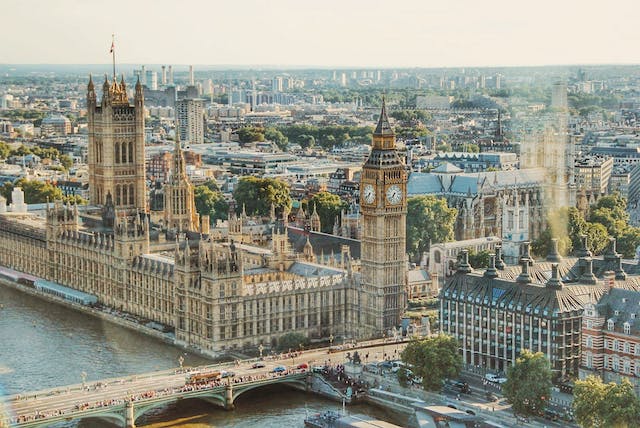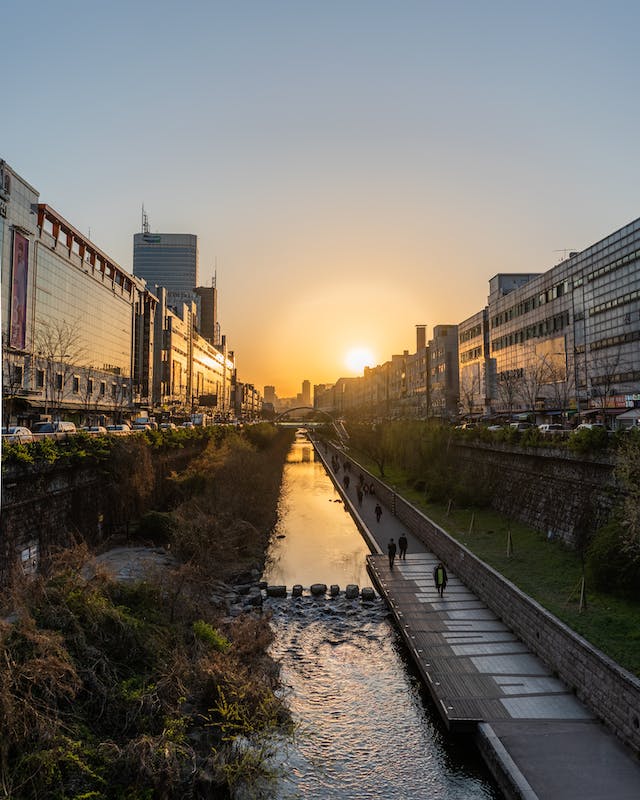Egg Freezing & IVF in Iran
At Zora Health, you are our top priority. We’re here to guide you through every step of your egg freezing or IVF journey — helping you understand your options, and make confident, informed decisions about your care and costs.
Egg freezing, also known as mature oocyte cryopreservation, is a method used to save women’s ability to get pregnant in the future.
In vitro fertilisation (IVF) is a procedure used to help with fertility, prevent genetic problems and assist with the conception of a child

Spread out the cost of treatment over 12, 24, and 36 months to avoid large upfront payments and reduce financial burden.
LEARN MORE
Accessible & affordable fertility care in Iran
Egg Freezing and IVF in Iran
In vitro fertilisation (IVF) is performed by fertility specialists for IVF candidates who have explained (such as low sperm count, blocked fallopian tubes, ovarian hyperstimulation syndrome, or polycystic ovarian syndrome) or unexplained infertility issues. To achieve a healthy pregnancy, IVF in Iran is available along with other infertility treatments such as artificial insemination or intrauterine insemination (IUI), intracytoplasmic sperm injection, embryo freezing, frozen or fresh embryo transfer, egg retrieval process, sperm donation, PGD, PESA/TESE, surrogacy, and sex selection, assisted hatching, karyotyping, and molecular genetic tests.
Some clinics with several years of experience specialise in treating patients with multiple miscarriages and IVF failures. IVF procedure doctors use the latest technologies and apply top-quality treatment methods to treat infertility. Many IVF cycle clinics have laboratories, a pharmacy, sonography and radiology rooms, an operation room, inpatient confinement, and international patient departments.
IVF treatment in Iran is available to legally married heterosexual couples. Couples need to bring their marriage certificates (translated into Farsi) and be endorsed by the Iranian embassy before consultation for fertility treatments. The female age restrictions at the clinic are 45 and a half years old for intracytoplasmic sperm injection (ICSI), 43 years for sex selection plus ICSI, and 41 years for fertility preservation. The average IVF cost in Iran is IRR 126,825,000 (USD 3,000) per cycle, including tests, doctor’s visits, and fertility medications.
All About Iran for Medical Tourists
The healthcare system is advanced in Iran. Many hospitals and clinics cater to medical tourists, especially from neighbouring countries, Europe, and Northern America. The medical services offered are broad and the prices are reasonable. In medical history, Iran has become the birthplace of Avicenna, the "father of modern medicine." His Canon of Medicine served as the medical reference for several countries around the world for centuries.
Today, Iran's medical tourism is booming, especially in the fields of infertility treatment, optical surgeries, and spinal operations. Medical tourists also appreciate the short waiting times in Iran's medical facilities. Doctors often receive international training and certifications while facilities pass national accreditation systems.
It is also worth noting that the political atmosphere in the country may pose a challenge to medical tourists. There is also a language barrier although this can be remedied by translation services provided by many medical tourism agencies and departments and most doctors speak English. International insurance is not always accepted at Iran's healthcare facilities.
What To Do in Iran During Your Medical Vacation
If you landed in the capital, Tehran, you'd love to hang out at the teahouses and coffee shops or shop till you drop at the city bazaars. While there, you can take a look at the mummies in the National Museum of Iran or the colourful gems at the Treasury of Natural Jewels. Travel to Esfahan, the city fit for kings and sultans. There you'll find the Naqsh-e Jahan Square filled with mosques and palaces that are fronted with ceramics, a UNESCO World Heritage Site. Have a shopping spree on spices and carpets to bring home to friends and family back home. Another must-visit city is Shiraz, home to good wine, poetry, and more mosques and gardens.
Respect the laws and customs of Iran as a Muslim nation. Women should wear long skirts and slacks and blouses and shirts with long sleeves in public places. Additionally, they should wear a head scarf. Israeli nationals are not permitted entry to Iran. When staying at a hotel, unmarried couples can share a room as long as they are not Muslim. Muslim couples should present a marriage contract. Muslims fast for 30 days during the annual Ramadan. Even non-Muslims must not eat or drink in public before sundown during Ramadan. Respect gender-separated areas marked as "men only" or "women only" in public vehicles and mosques. Do not shake the hands of someone who is not of your same gender. When exporting goods, keep to the allowed limits: a maximum of 10 kilos of pistachios and other nuts; 100 grams of saffron; and 20 meters of carpet per person.
To have IVF in Iran, you will arrive either at Mehrabad International Airport or Imam Khomeini International Airport (IKIA) in Tehran. From there, you can take domestic flights for long distances. The following are some airline choices for domestic flights: Iran Air, Mahan Air, Kish Air, Qeshm Air, ATA, Atrak, Caspian Airlines, Iran Airtours, Meraj Airlines, and Taban Air. The most convenient transportation in Iran is on buses. Aside from regular buses, there are VIP buses and night buses. Take the train from Tehran to Tabriz, Esfahan, Mashhad, Bandar Abbas, and Kerman. Within cities, take taxis, Snapp (Iran's ride-hailing app), normal and BRT (bus rapid transit) city buses, and the subway.
Persian or Farsi is the official and most widely spoken language in Iran. Other languages are Azerbaijani, Kurdish, Luri, and Arabic.
Social Attitudes Towards Fertility Treatment
A study reported that women in Iran who seek IVF and infertility treatment encounter many social challenges that could negatively affect their life quality. Negative effects of IVF failure include violence (physical, verbal, or stigma), problems in the marriage, social isolation and exclusion, being ignored by relatives in family gatherings, and social alienation. The study recommended that infertility be considered a biomedical issue of a couple and that infertility treatment be prioritised.
Benefits of Doing Fertility Treatments in Iran
Those who fear IVF failure would be glad to know that fertility treatment clinics in Iran have high success rates for IVF procedures. Some clinics offering IVF in Iran report up to 50% IVF success rates in the pregnancy test. The average IVF cycle success rate for women below 35 is 40%. For women above 35 years who receive IVF treatment, the average IVF success rate is 15 to 20%. The overall IVF success rate across the ages is 28%. IVF treatment is more affordable than in the U.S. or Europe at an average of USD 3,000.
Donor eggs and sperm are legal, improving successful pregnancy chances for those with female and male factor infertility. IVF treatment and surrogacy are also permitted. There are more than 50 fertility centres in the country that offer the IVF method, mostly in Tehran, Mashhad, Yazd, and Shiraz. There is no public funding for assisted reproductive technologies techniques.
Private Fertility Clinics in Iran
Avicenna Fertility Centre
Avicenna Fertility Centre in Tehran is affiliated with the Avicenna Research Institute (ARI) and in collaboration with the ART Centre of the USHCL University of Germany. Established in 2003, it is the first Iranian fertility clinic that specialises in patients with multiple miscarriages and IVF failures. With more than a decade of experience in IVF in Iran, services at the clinic include IVF treatment, egg freezing, sperm freezing, egg, sperm and embryo donation, surrogacy, PGS, and sex selection.
The fertility clinic has an international department that coordinates treatment programs with free translation services for foreign patients. IVF doctors at the clinic use the latest technologies and apply top-quality treatment methods for infertility treatment. The clinic is an all-in-one centre that houses laboratories, a pharmacy, sonography and radiology rooms, an operation room, and inpatient confinement.
Avicenna Fertility Centre is ISO-certified. It also has an International Patient Department permission from the Ministry of Health and Medical Education of Iran. The clinic has interpreters to keep international patients informed throughout the IVF treatment.
Couples need to bring their marriage certificates (translated into Farsi) and be endorsed by the Iranian embassy before consultation to have IVF in Iran. The female age restrictions at the clinic are 45 and a half years old for intracytoplasmic sperm injection, 43 years for sex selection plus intracytoplasmic sperm injection, and 41 years for fertility preservation. The clinic provides up to five intracytoplasmic sperm injection cycles and transfers three frozen embryos per IVF cycle. Required eligibility tests for IVF treatment include HIV screening, Hepatitis B and C, and VDRL tests.
Royan Infertility Treatment Centre
Established in 1991, Royan Infertility Treatment Centre is one of the best IVF clinic options in Iran and the Middle East because of its specialised services and application of modern scientific studies. Infertility treatments include IVF treatment, intracytoplasmic sperm injection, IUI, PESA/TESE, pre-implantation genetic diagnosis (PGD) and gender selection, embryo donation, donor eggs, uterus surrogacy, ovulation induction, gamete and embryo cryopreservation, assisted hatching, karyotyping, and molecular genetic tests such as Factor V Leiden, Factor II, and MTHFR gene.
The clinic accommodates around 200,000 patients and 6,500 IVF treatment cycles annually. It has achieved successful pregnancy outcomes for more than 3,000 couples to date. Medical tourists can book IVF treatments at the centre through a medical tourism facilitator company such as HayatMedTour, which provides international infertile couples accommodation, travel, and healthcare services.
Amin Infertility Centre
The best IVF clinic in the west of Iran, Amin Infertility Centre offers IVF treatment, IUI, PGD, semen analysis, and varicocele treatment for male infertility through open surgery, laparoscopic surgery, or skin embolisation. The clinic is open to Iranian and non-Iranian couples.
Costs to Consider
The average cost of IVF in Iran is IRR 126,825,000 (USD 3,000) per IVF cycle, including tests, doctor’s visits, and fertility medications.
IVF treatment in Iran with PGD (sex selection) or egg donation is IRR 232,512,500 (USD 5,500) and IRR 274,787,500 (USD 6,500) for IVF treatment with both egg donation and PGD.
Other Considerations Before Starting Your Fertility Treatment in Iran
IVF
IVF treatment in Iran is available to legally married heterosexual couples.Sex selection is permitted.
Egg Freezing
Egg freezing is permitted.
Donors
Egg donation, sperm donation, and embryo donation are permitted for Iranian couples.
Surrogacy
Surrogacy is permitted.Why Choose Iran for Your Fertility Treatment
Fertility treatment clinics in Iran have high success rates. Some clinics report up to 50% IVF success rates. The average IVF cycle success rate for women below 35 is 40%. For women above 35 years, the average IVF success rate is 15 to 20%. The overall IVF cycle success rate across the ages is 28%. IVF treatment in Iran is more affordable than in the U.S. or Europe at an average IVF cost of USD 3,000. There are more than 50 fertility centres in the country, mostly in Tehran, Mashhad, Yazd, and Shiraz.
After having your IVF treatment in Iran, visit mosques, palaces, and museums and splurge on spices, carpets, and Shiraz wines at the city bazaars.
Ready to do your egg freezing & IVF journey in Iran?
Meet Our Network of
Experienced Fertility Specialists

You deserve the very best.
That's why we’re here to support you — whenever you need it.
1
Personalised Care Navigation
Expert guidance to choose the right care provider and navigate the process, costs, & regulations.
2
Seamless, All-in-One Care
Consultations, diagnostics, telehealth, education, & treatment referrals are available on one platform.
3
Trusted, Reliable Resources
Gain clarity & confidence with verified information. Save time, reduce stress, & eliminate endless research.
Global reach, unparalleled service

"Clear pricing - clarity & support from start to end."
"I love Zora Health for their simple, transparent pricing. It was a relief not to worry about unexpected fees or hidden costs. They made the entire process stress-free and easy to understand, which allowed my husband and I to focus on what mattered most - my family's future."
Syarifah, 27 & Indra, 29

"I couldn't believe that I can choose my own doctor and enjoy extra benefits for the same price."
"I had a preferred doctor overseas that my girl friends recommended. He is part of Zora’s clinic network, but I was interested in Zora’s support and perks. After speaking to Zora, they assured me I wouldn’t pay extra. Zora managed the whole process - from personalised guidance to answering my queries about legalities."
Nina, 32, Single

"The financing options lifted a huge weight off my shoulders."
"Zora’s instalment plans were a true lifesaver. I was so grateful for their flexible and affordable options. I have been thinking about preserving my eggs as a form of “insurance” but didn’t want to pay a big lump sum upfront as I am saving for a house. The instalment plan helps me manage my finances better.”
Elaine, 32

"I never felt alone in my fertility journey."
"After failing previously, we were very anxious and were not sure what to expect. They guided us through the process and cared for us every step of the way. My treatment at the clinic was long, and sometimes it was emotionally draining, but having a fertility coach made us feel better and more prepared. As busy professionals, we appreciate the convenience of scheduling appointments through Zora. I have recommended Zora to all our friends."










